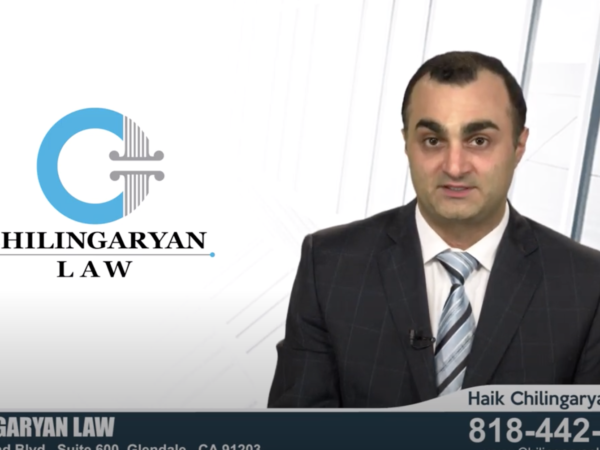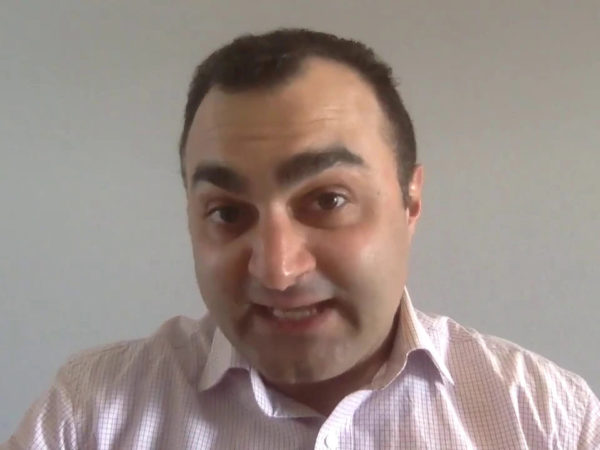
Estate Planning In A Nutshell
What Is Estate Planning?
Estate planning is a series of steps an individual takes in advance to determine the outcome to the paramount issues that may arise in the event of the individual’s incapacity and under what circumstances the individual’s estate will be distributed at the time of his or her death. In essence, it is a proactive tool that prevents the courts from making critical decisions about the individual on his or her behalf. An estate plan may include Living Trusts, Wills, Durable Power of Attorney, Health Care Directives, and Guardian Designations.
Proper estate planning does not merely include the formation of these documents, but the process of identifying the objectives sought by the individual and putting in place the strategies that aim to accomplish his or her goals. Thus, estate planning primarily consists of the advice and guidance that you get from a professional who can be a steward in the preservation of your wealth. It also provides you with the opportunity to nominate trusted individuals or entities who will make the requisite decisions on your behalf in the event of your incapacity.
Why Do You Need An Estate Plan?
There are many incentives for engaging in estate planning, including tax efficiency during the individual’s lifetime and after death, protecting assets from creditors, appointing the right person to oversee the health care and financial decisions in the event of incapacity, protecting children or disabled family members by nominating a guardian of the individual’s choice in the event of the individual’s disability or death, and preventing family feuds.
Family feuds can especially occur in blended families (i.e., children from previous marriages) not only at the time of the distribution of the estate when the individual is already dead, but also in the event of a health crisis during the individual’s life. That is why it is essential to provide someone with decision-making authority and determine the individual’s wishes in advance to prevent such feuds from taking place. One way to prevent the family disputes from occurring is by executing certain documents including Health Care Directives and the designation of a financial Power of Attorney. Alternatively, the lack of these documents may trigger a conservatorship, which can add unnecessary costs while not accomplishing the goal of the individual if someone other than the desired person is granted with the decision-making authority by the court on behalf of the individual.
Even if the family members are not required to go through the court process to be granted with decision-making authority, it is not difficult to imagine a scenario where the family members are in a heavy dispute and the impact of the dispute leaves an irreversible stain on their own relationships. For example, there may be a significant treatment available that may prolong the individual’s life, but it might also cause significant pain to the individual. It is difficult to reconcile the views of the different family members and make those kinds of decisions in accordance with the individual’s wishes if the means to arriving to those decisions were not determined in advance by the individual. In order to prevent hardships on family members and ensure that the individual’s wishes are carried out accordingly, it is essential to properly execute all documents related to financial and health care decisions in the event of incapacity.
The financial decisions on behalf of the individual are generally granted by the execution of financial Power of Attorney. The Power of Attorney grants a third party with the authority to manage the financial assets of the individual. It can be immediately effective or become operative when a certain condition is triggered (e.g., incapacity). It can also be limited to a specific circumstance such as entering into a lease agreement. Generally, a Power of Attorney terminates upon the disability of the individual. However, a “Durable” Power of Attorney does not terminate upon disability, its duration survives the disability of the principal individual. In either instance, however, the powers terminate upon the death of the individual.
A Durable Power of Attorney can be effective immediately or can spring into effect upon the occurrence of a condition precedent. If the contingency is incapacity, then one or two doctors must generally attest to the incapacity. Some of the powers that are granted to the agent on behalf of the principal under a Durable Power of Attorney include the right to execute tax returns, sue on behalf of the principal, make gifts, buy or sell real estate, and invest in securities. In other words, the agent steps in the shoes of the principal in nearly all financial matters. However, special care should be implemented if the trustee and the agent are not the same individuals.
Similar to the powers that are granted to the agent for making financial decisions on behalf of the principal, there are also powers that are granted to the agent to make decisions on behalf of the principal regarding health care matters. This can include choosing or discharging health care providers and institutions, and approving or rejecting procedures or diagnostic tests. This why it is critical for the agent to also have authority under HIPAA (ie., the medical records privacy act) to have access to medical, dental, and other records related to the health of the principal.
The end of life matters, however, are difficult for any agent – whether he or she is inside or outside of the family – to decide. End of life matters are generally effectuated by the Living Will. The Living Will is a written declaration which allows the individual to determine his or her wishes in advance regarding the application of life-prolonging medical treatment in the event the individual becomes terminally ill, permanently unconscious, or is unable to communicate. In other words, the individual is in such a state where he or she can no longer make or communicate medical decisions. In such instances, the individual is usually in such a condition where he or she will die if there is no life-sustaining treatment received such as intravenous feeding or respirator.
A planning tool that may come into play for individuals with minor children or family members with special needs is the designation of a guardian of their choice to look after their family members in the event of their incapacity or death. For families with minor children, it is critical to consider nominating both temporary guardians and permanent guardians. If there are no temporary guardians named and the permanent guardians are not available, the child or children may be at the risk of being taken into protective custody. Special consideration should also be given to the Guardian Designations in the individual’s will.
By now, all of the planning tools discussed in this section pertained to the set of issues that arise during the course of the individual’s life. There are also a number of issues that may arise upon the death of the individual that may cause for the family members of the deceased individual to be subject to an unnecessary waste of time and money, family disputes, and disclosure of the family dynamics and finances to the public during the probate proceeding.
Probate is a process which allows the decedent’s assets to be transferred from the decedent’s estate to his or her heirs. Probate is an expensive and time-consuming process. In California, the costs associated with probate decrease the overall value of the estate by an average of 5%. In addition, the probate process may last anywhere between 12 to 16 months. By merely having a Will in California, probate will not be avoided if the individual’s assets are $150,000 or more at the time of his or her death. However, there are certain types of assets that are exempt from probate including property passed by contract or beneficiary designations under life insurance and annuities, qualified plans and IRAs, joint tenancy with right of survivorship, and Living Trusts.
The avoidance of probate via the enforcement of a Living Trust is significant because probate is also a public proceeding and the probate records become public record. As such, family feuds become highly problematic in these settings as well, especially when some family members may believe that they are entitled to a greater share in the decedent’s estate than they would otherwise receive under a will or intestacy (ie., without a trust or will). However, transfers of assets pursuant to a Living Trust are generally conducted in private settings and the provisions included in the trust are generally executed in accordance with the individual’s wishes.
A Living Trust is a relationship created during the lifetime of the person who created the trust, in which the Trustee manages the property for the benefit of the Beneficiary. Living Trusts can be established for a certain period of time or by the occurrence of a specified event. The creator of the Living Trust retains the right to amend, revoke, or change the terms of the trust during his or her lifetime. Special considerations should be given to planning for married couples and blended families.
How Do We Design And Implement Your Estate Plan?
In a nutshell, our firm takes the comprehensive approach to estate planning, which includes not only the methods in which a person’s assets are distributed upon death, but also the implementation of strategies that preserve the most amount of wealth during one’s life. It follows that the most amount of wealth that can be preserved during one’s life can increase the overall value of the estate, which the beneficiaries will receive upon one’s death. Our firm also uses the various tools available in the legal realm in order to protect the assets of our clients from creditors and predators.
Every client’s case is unique. As such, we conduct a separate analysis for each client to determine what particular strategies are best utilized to not only protect the client’s assets, but to also minimize the tax liabilities of our clients. Estate planning is a foundational step to tax planning and business structuring and succession planning. At the core of every type of plan (including an advance estate plan), a Living Trust is usually necessary for among other things to determine how the assets will be distributed at the death of the individual.
Our firm implements a process by first assessing the client’s situation and understanding the concerns facing the client. Thereafter, we present the best choice that we believe will meet the objectives sought by our client. We are dedicated to crafting a plan that not only serves to minimize the tax consequences for our clients, but to also ensure that their desires are carried out accordingly both during life and after death.
Important Note: Chilingaryan Law or its affiliates are not rendering legal, financial, or tax advice by providing the content above. No attorney-client relationship is formed based on the information provided above. The above content is designated only for educational use. Accordingly, Chilingaryan Law assumes no liability whatsoever in reliance on its use. Additionally, certain changes in law may affect the legality of the information provided above and certain circumstances of the reader may vary the applicability of the above content to his or her situation.


